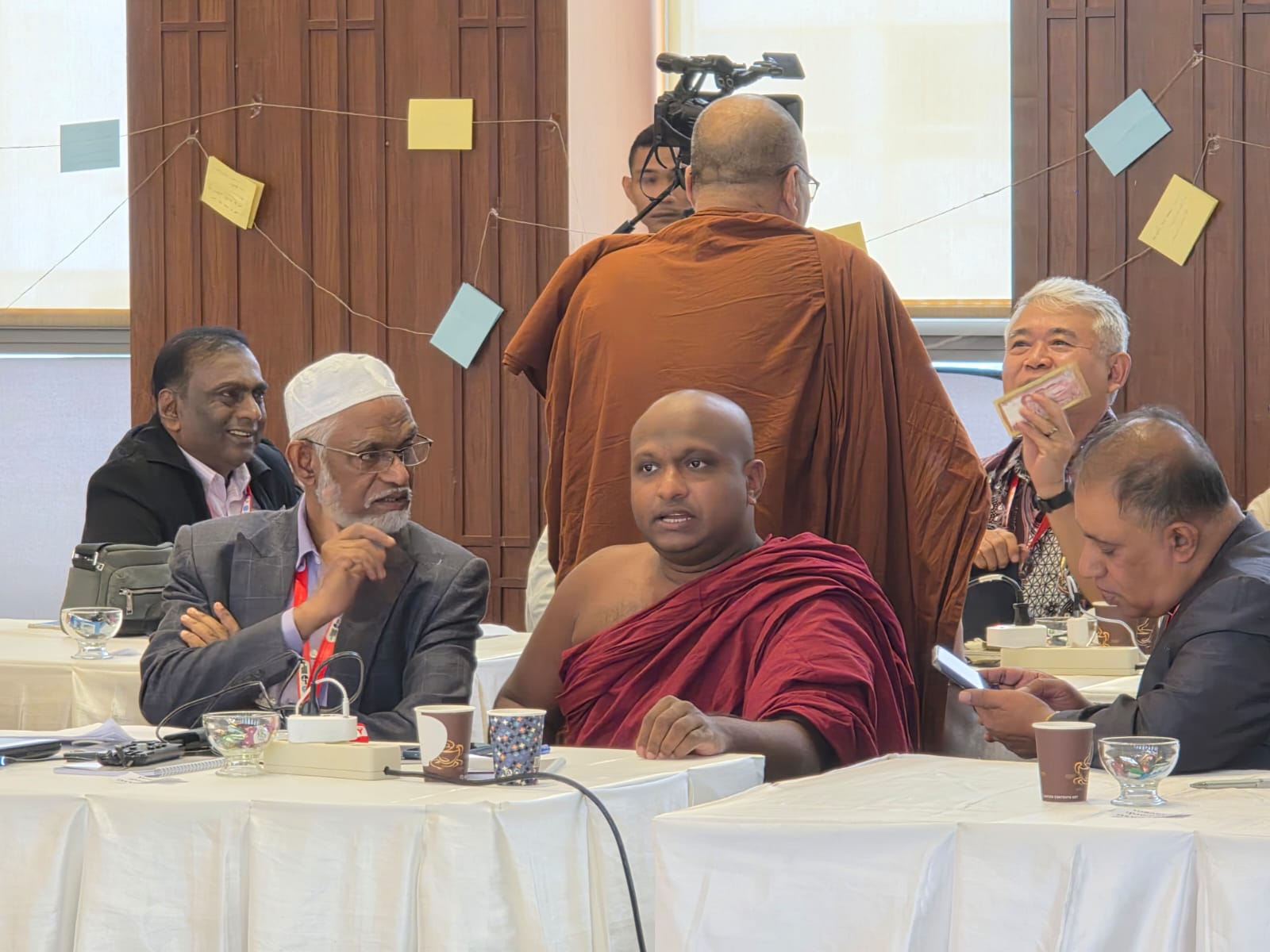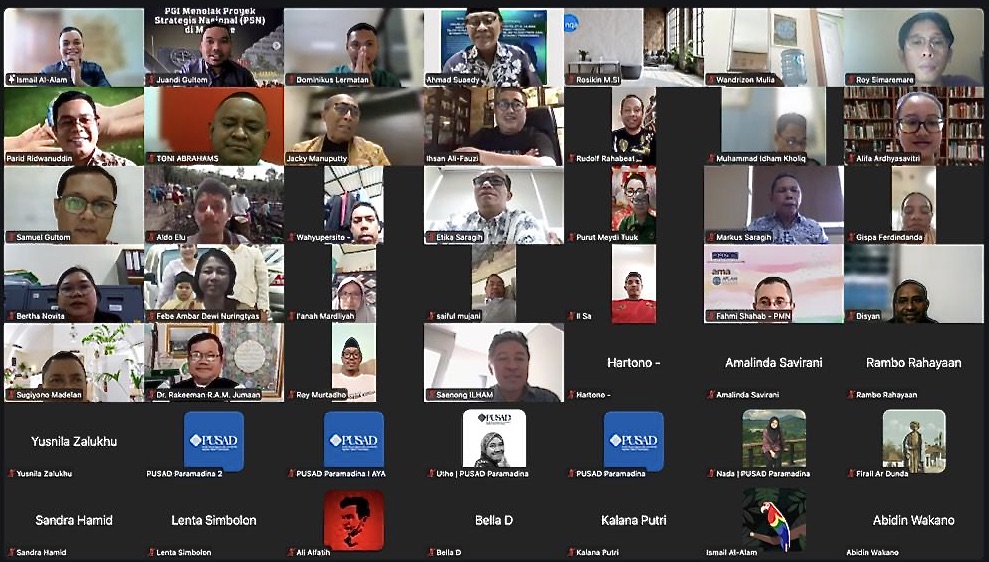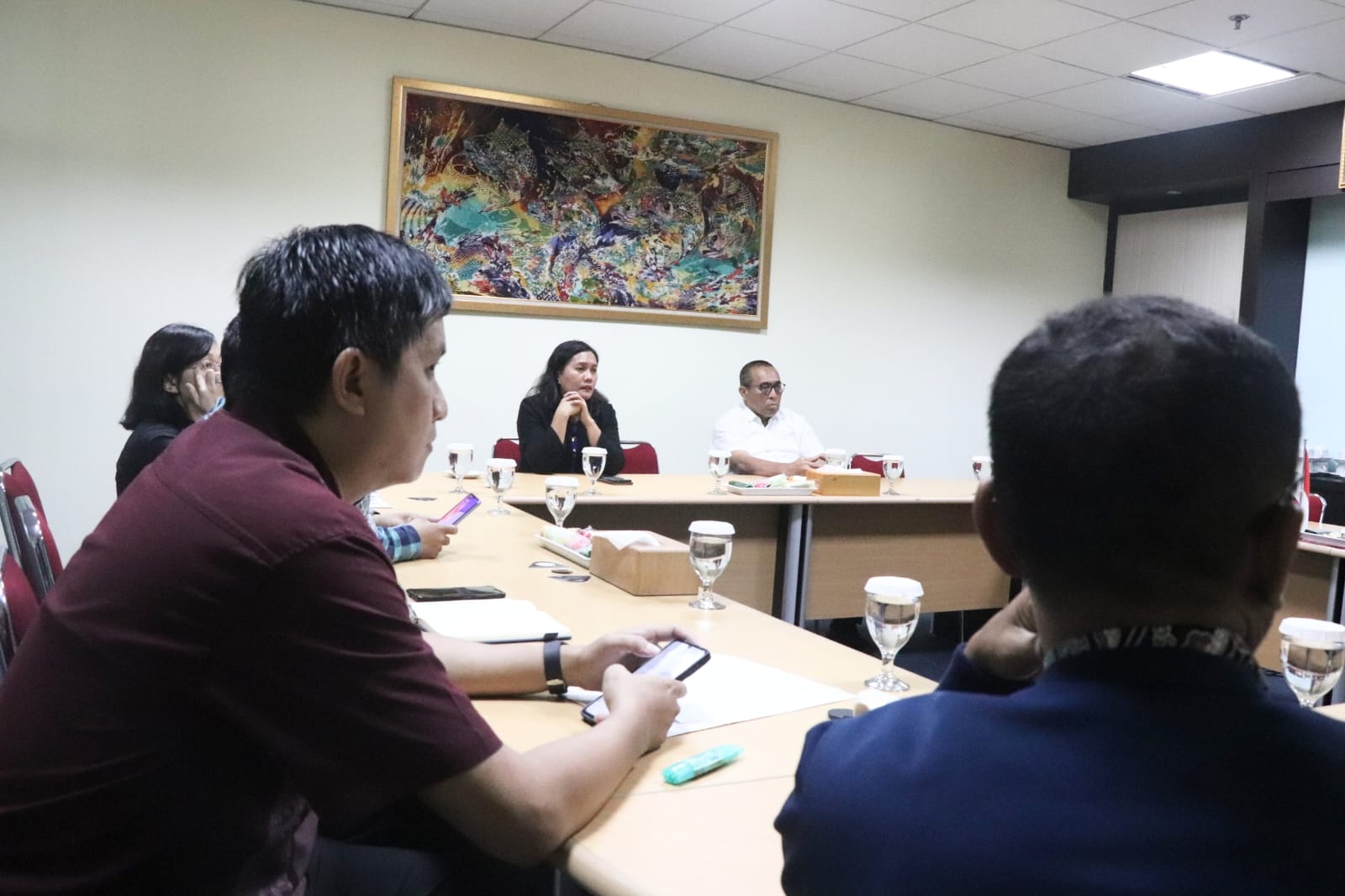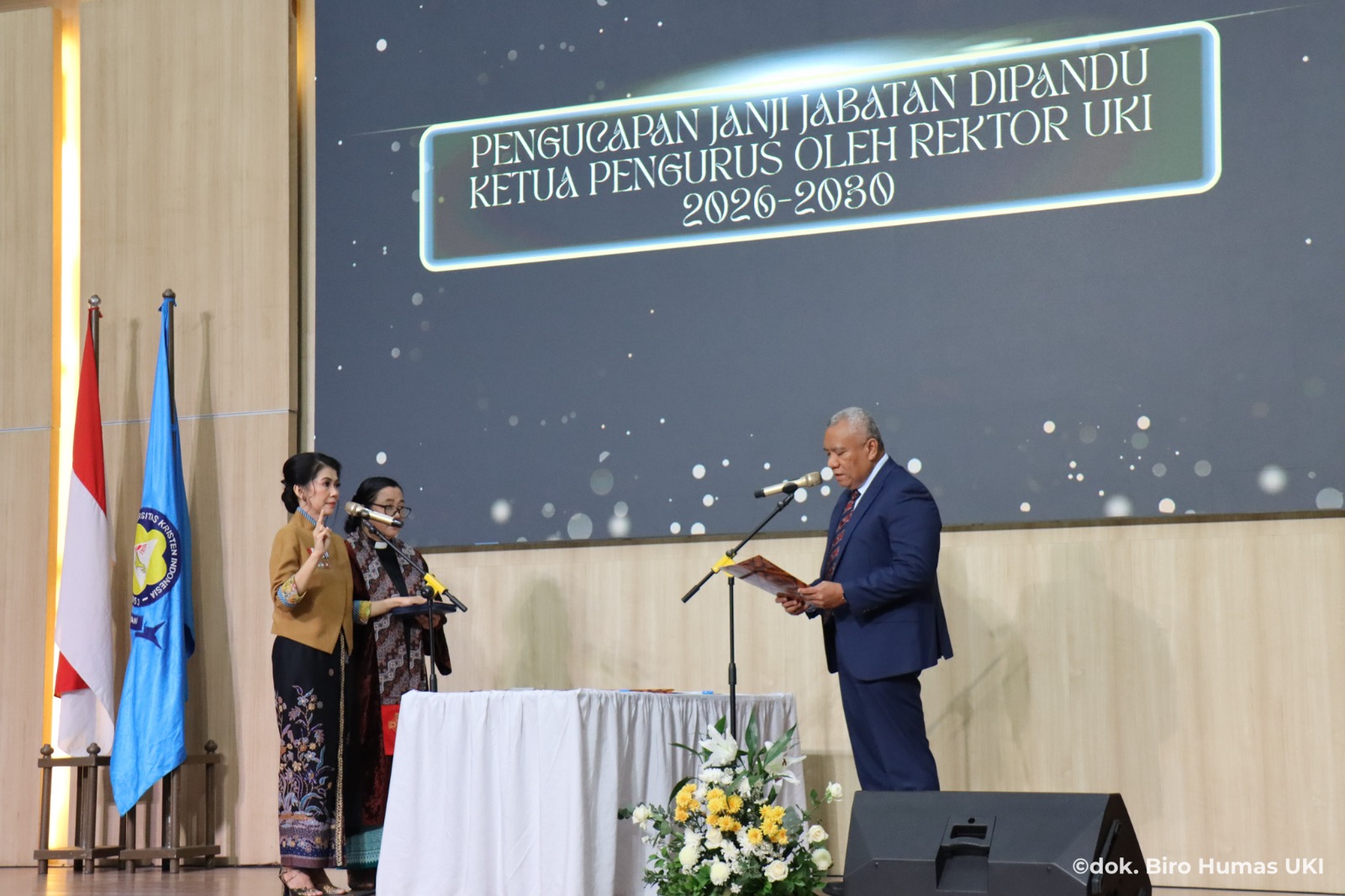Christian Conference of Asia (CCA) Highlights Country-Specific Challenges to Freedom of Religion and Minority Rights
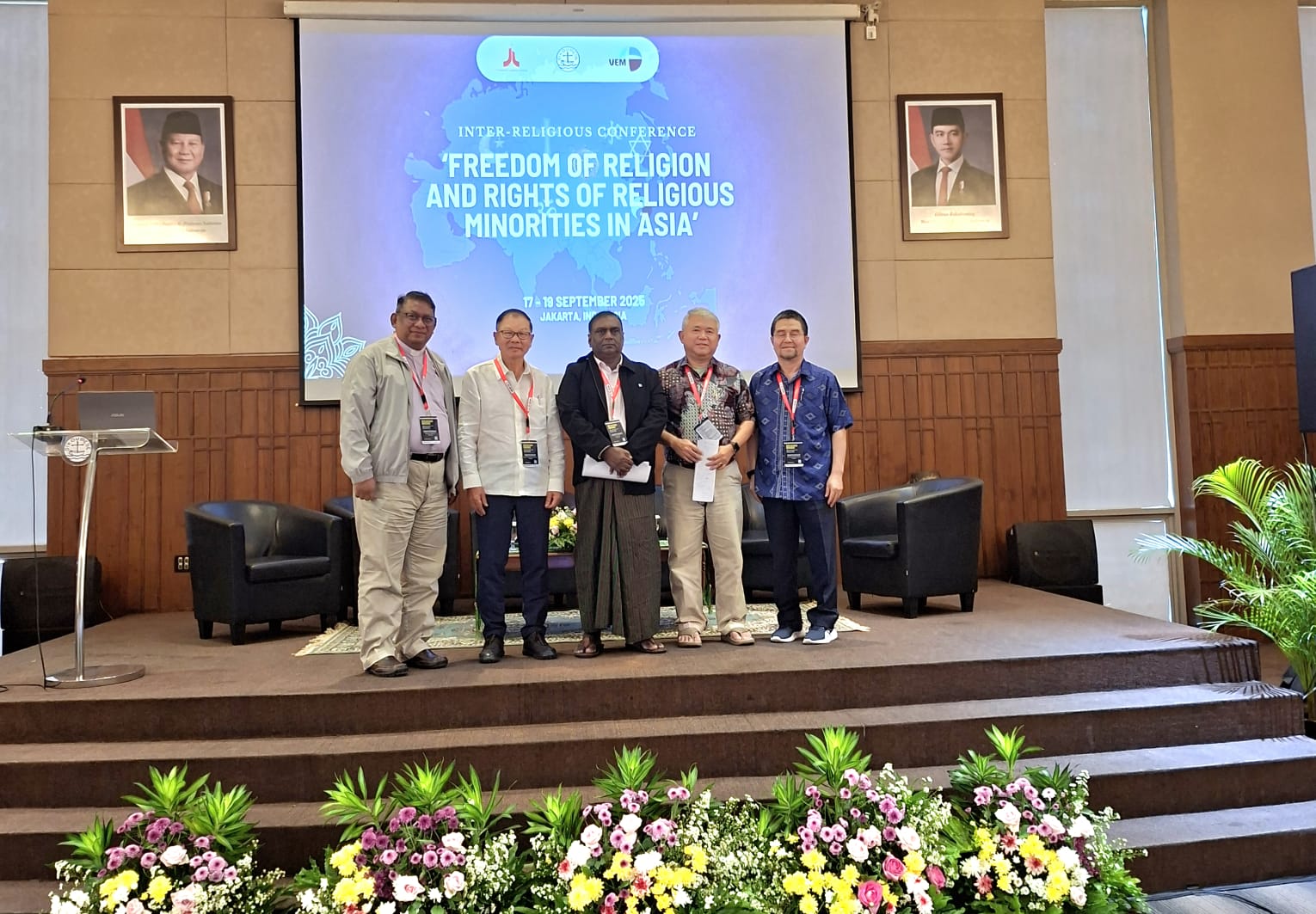

Alfian Rico Komimbin
19 Sep 2025 22:17
Jakarta, Indonesia – September 18, 2025 – The second day of the Inter-Religious Conference on Freedom of Religion and the Rights of Religious Minorities in Asia, convened by the Christian Conference of Asia (CCA), directed its focus toward country-specific analyses of religious freedom and the rights of minorities. Scholars, religious leaders, and community representatives presented perspectives from across the region, offering an unflinching account of the disparities between constitutional guarantees and lived realities.
The deliberations underscored a consistent theme: while legal frameworks often affirm freedom of religion, structural inequalities, political majoritarianism, and social hostility continue to undermine those rights. Testimonies highlighted both entrenched challenges and emerging models of interfaith cooperation, reinforcing the urgent need for dialogue, reform, and regional solidarity.
Thailand: Constitutional Guarantees Amid Rising Islamophobia
Rev. Dr. Pradit Takerngrangsarit presented an overview of Thailand’s religious composition, noting that over 90% of the population adheres to Buddhism, while Muslims, Christians, Hindus, Sikhs, and Chinese religious groups represent significant minorities. The Thai Constitution guarantees freedom of religion, yet the dominant role of Buddhism permeates cultural, educational, and political life. Christian communities enjoy recognition through umbrella organizations, but many smaller denominations remain unregistered, limiting their ability to acquire land, establish institutions, or participate fully in public life. Building on this structural assessment, Dr. Suchart Setthamalinee, Commissioner of the National Human Rights Commission of Thailand, addressed the fragile relationship between Buddhists and Muslims. His presentation, The Rising of Islamophobia in Thai Society, traced the phenomenon to conservative Buddhist mobilization, the ongoing conflict in the South, and inflammatory rhetoric amplified through media and social networks. Complaints submitted to the Commission highlight restrictions on hijab in schools, refusals to register mosques, opposition to the Muslim call to prayer, and perceptions of preferential policies toward Muslims. Dr. Setthamalinee stressed that Islamophobia is not merely a matter of personal prejudice but is often politically instrumentalized. Initiatives such as the Wasatiyah Institute for Peace and Development and interfaith “mosque tour” programs demonstrate efforts to counter mistrust, but the persistence of suspicion and hostility reveals the fragility of Thailand’s pluralism.
Myanmar: Hindu Communities in a Climate of Vulnerability
Kyaw Myint offered an account of Myanmar’s Hindu minority, comprising just 0.5% of the population. While the 2008 Constitution guarantees the right to profess and practice religion, Hindus face marginalization, underrepresentation, and occasional societal hostility. Historically, Hindu culture shaped Burmese society through language, architecture, and ritual practice—evident in sites such as the Nat Hlaung Kyaung temple in Bagan. Today, however, Hindu communities remain concentrated in urban centers and ethnic enclaves, often excluded from political processes and vulnerable to discrimination. The devastating earthquake of 2025 further compounded these vulnerabilities, damaging Hindu temples alongside Buddhist and Christian sites. Myint urged governments and interreligious bodies to translate constitutional promises into actionable protection, ensuring that Hindus and other minorities are included in reconstruction and governance processes
Sri Lanka: An Islamic Perspective on Rights and Coexistence
Ash Sheikh S.H.M. Faleel articulated an Islamic framework for religious freedom, drawing on Qur’anic principles such as “No compulsion in religion” (2:256) and “To you your religion, to me mine” (109:6). He emphasized that the Charter of Madinah and the Treaty of Umar provide historical precedents for coexistence and protection of non-Muslim communities. Sri Lanka’s Constitution enshrines freedom of conscience and belief in Articles 10 and 14, while simultaneously giving Buddhism the “foremost place” under Article 9. This dual framework leaves minorities vulnerable, especially in the context of majoritarian politics, extremist mobilization, and episodes of religiously motivated violence. Faleel called for a narrowing of the gap between principle and practice, urging stronger legal safeguards, robust action against hate speech, and inclusive governance. He concluded with a message of hope, contending that Islamic principles of justice and mutual respect provide a constructive basis for unity and harmony in Sri Lanka’s multi-religious society
Timor-Leste: Catholic Dominance and Inclusive Fraternity
Rev. Levi Vasconcelos Pinto described Timor-Leste as a predominantly Catholic nation, where 97% of the population identifies with the Church, alongside Protestant, Muslim, and indigenous minorities. The 2002 Constitution affirms religious freedom, yet the Catholic Church maintains privileged status through a concordat with the Vatican that secures state funding. Other religious groups are treated as civil organizations, limiting their institutional capacity and access to state resources. Discriminatory legacies persist in family law, particularly regarding marriage, where Catholic certificates historically held exclusive recognition. Patriarchal traditions further constrain religious autonomy, particularly for women compelled to adopt their husband’s faith. Nevertheless, Pinto highlighted constructive developments rooted in the principle of human fraternity, embraced nationally after the 2019 joint declaration by Pope Francis and the Grand Imam of Al-Azhar. Interfaith celebrations, collaborative seminary training, and educational reforms point to an emerging culture of dialogue. Pinto, however, warned against proselytism and urged Christian communities to prioritize engagement, solidarity, and mutual recognition, affirming that any denial of religious freedom constitutes both social injustice and a theological violation.
Cambodia: Legal Recognition and Conditional Rights
Dr. Khan Khon outlined Cambodia’s constitutional framework, which affirms religious freedom while assigning Buddhism a privileged role as the state religion. Minority groups—including Cham Muslims, Christians, and indigenous traditions—are permitted to practice their faith but face bureaucratic surveillance, restrictions on construction of worship sites, and occasional limitations on public religious expression. At the same time, positive signs are visible: Muslim leaders have secured positions in public life, and interfaith cooperation has expanded in education and social development. Khon argued that genuine equality requires dismantling conditional structures and embedding minority rights within a framework of universal and enforceable guarantees
Pakistan: The Crisis of Blasphemy Laws
The most sobering testimony concerned Pakistan, where constitutional guarantees are compromised by blasphemy legislation and systemic discrimination. Nearly 2,800 blasphemy accusations have been recorded since 1987, with religious minorities disproportionately affected. Extra-judicial killings, mob violence, and discriminatory law enforcement exacerbate the climate of fear. Discrimination also extends to prisons, schools, and labor markets, creating cycles of exclusion and vulnerability. Bishop Leo Rodrick Paul emphasized the urgent need for judicial independence, effective implementation of protective laws, and interfaith advocacy to challenge extremism and violence.
Regional Reflections and Broader Implications:
From Victimhood to Shared Responsibility
In concluding remarks, Bishop Leo Rodrick Paul stressed that religious minorities should not be regarded solely as victims but as vital contributors to national cultures and societies. Their roles in education, health care, social welfare, and interfaith initiatives enrich the fabric of their respective nations. He underscored the responsibility of governments and faith leaders to align constitutional commitments with daily practice, urging regional solidarity in defense of religious freedom. Taken together, the country reports revealed strikingly similar dynamics: constitutional recognition of freedom of religion coexisting with privilege, exclusion, and prejudice. Yet across the region, positive examples of dialogue, inclusive education, and reform demonstrate that progress is possible. By situating religious freedom as a benchmark for democracy, human dignity, and peace, the Christian Conference of Asia reaffirmed that protecting the rights of minorities is not a marginal concern but an essential prerequisite for stability and justice in Asia.
Berikan Komentar
Alamat email anda tidak akan dipublish, form yang wajib diisi *
Berita & Peristiwa
Penolakan Terhadap PSN, PGI Diapresiasi Akademisi dan Pekerja Lingkung...
JAKARTA,PGI.OR.ID-Penolakan Persekutuan Gereja-gereja di Indonesia (PGI) terhadap Proyek Strategis Nasional (P...
Audiensi MGMP PAK SMA–SMK DKI Jakarta ke PGI. Perkuat Sinergi Pend...
JAKARTA,PGI.OR.ID-Persekutuan Gereja-gereja di Indonesia (PGI) menerima audiensi Musyawarah Guru Mata Pelajara...
Prof. Angel Damayanti Resmi Dilantik sebagai Rektor UKI yang Baru. PGI...
JAKARTA,PGI.OR.ID-Prof. Angel Damayanti resmi melanjutkan estafet kepemimpinan sebagai Rektor Universitas Kri...


